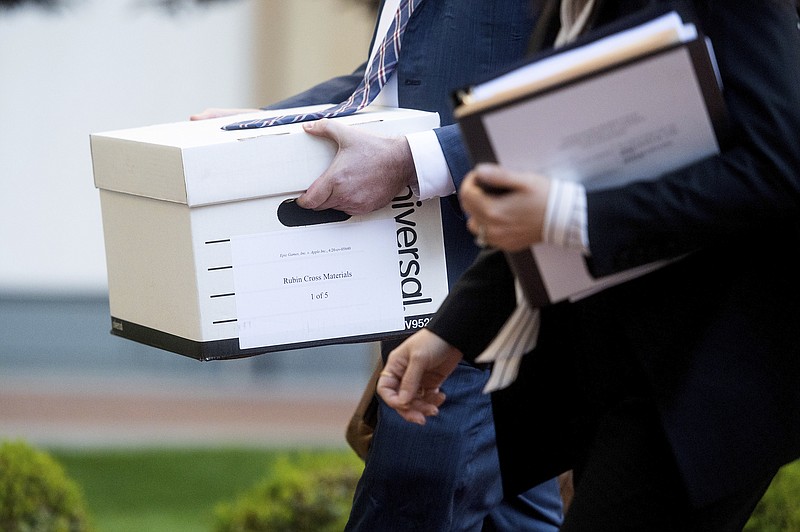SAN RAMON, Calif. -- The judge who will decide a case challenging Apple's stranglehold on its iPhone app store indicated Monday that she would like to promote more competition but without dismantling a commission system that reaps billions of dollars for the technology powerhouse.
U.S. District Judge Yvonne Gonzalez Rogers isn't likely to issue a decision until this summer. But she opened a window into her thoughts during a three-hour session with lawyers for Apple and its adversary, Epic Games, during the final day of a three-week trial in Oakland, Calif.
Gonzalez Rogers' line of questioning suggested she sides with much of the defense that Apple has mounted to justify the 15% to 30% commissions it collects for in-app transactions on the iPhone to help pay for the technology powering its devices.
Epic Games, the maker of the popular video game Fortnite, has been trying to prove the fees are the price-gouging tool of a monopoly hatched within the "walled garden" Apple has built around the iPhone, the app store, its software and other devices such as the iPad and iPod.
To loosen Apple's control, Epic wants Gonzalez Rogers to issue an order that would require Apple to open the iPhone and its other mobile products to rival app stores. Those alternatives would include Epic's still-unprofitable app store, which charges a commission of 12%.
Apple's app store, in contrast, has become far more profitable than its late co-founder, Steve Jobs, ever envisioned when he opened it 13 years ago. Precisely how profitable wasn't revealed in the trial.
Gonzalez Rogers doesn't seem to believe the fees are unreasonable, let alone illegal. That's in part because because Apple's commissions mirror those charged on in-app commissions by the app store feeding about 3 billion devices powered by Google's Android software, as well as those imposed by major video game consoles -- Sony's PlayStation, Microsoft 's Xbox and Nintendo's Switch.
The judge also seemed to support Apple's right to maintain a rigidly controlled ecosystem of products that has won over consumers around the world, including many who pay more than $1,000 to buy an iPhone.
"Your formulation seems to ignore the reality that customers choose an ecosystem," Gonzalez Rogers told Epic lawyer Gary Bornstein. "It is Apple's business strategy to create a particular type of ecosystem that is incredibly attractive to purchasers, to its consumers. So if those consumers choose to enter into an ecosystem ... that's what you know you're buying into."
Bornstein countered that most consumers don't understand the extent they will be locked into Apple's ecosystem and often pay scant attention to the costs of in-app purchases that are tiny compared to the price of an iPhone.
Gonzalez Rogers said last week that she hoped to issue her decision by Aug. 13. But on Monday warned she may need even more time to review thousands of pages of information submitted during the case.
